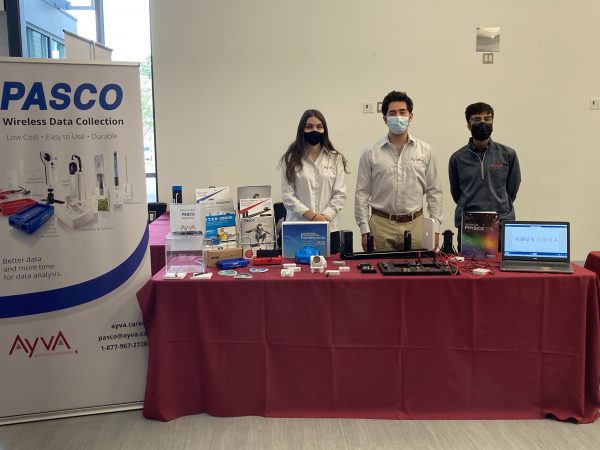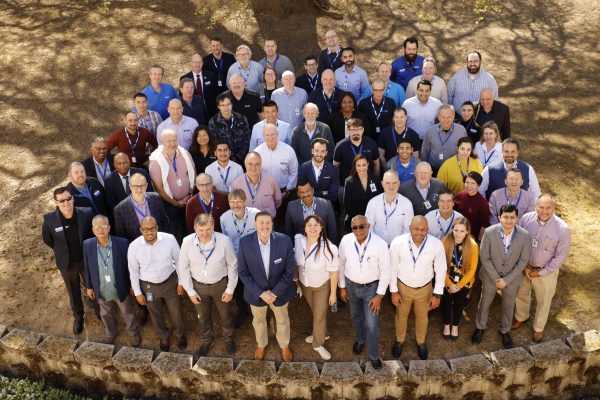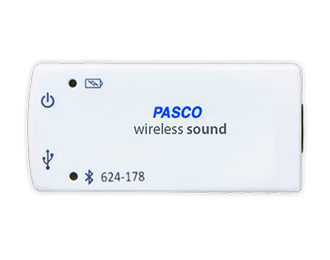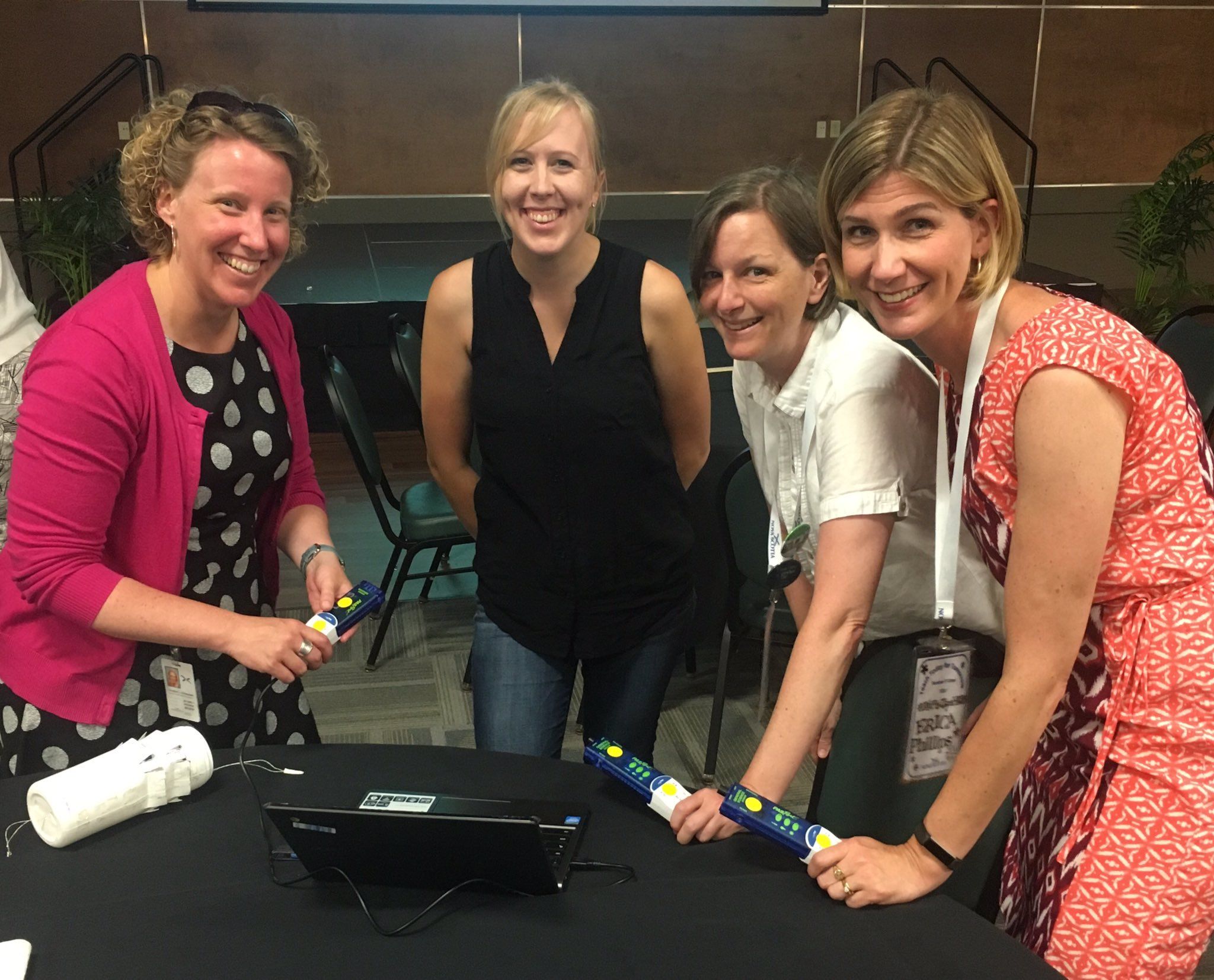PASCO Wins Best of STEM for 2023 Educators Pick Awards
We are excited to share that three PASCO products have been chosen as Best of STEM Winners!
Educators Pick Best of STEM is a program designed to rank and award outstanding innovations in STEM education with educators as the judges. Winners are chosen through an aggregate vote based on the criteria for the product category.
This year, PASCO submitted three entries which all won their category! Read about each of them below, and also check out the press release by GlobeNewswire here featuring PASCO Academy and our Meter Stick Optics Complete System: Science Educators Name PASCO Scientific as Best of STEM in Two Categories.
PASCO Academy | Best of STEM: Video-Based Learning
 |
 |
PASCO Academy is a comprehensive library of digital hands-on resources for students both inside and outside the classroom. There are three versions: Physics Academy, Chemistry Academy, and Biology Academy.
PASCO Academy is designed to do some of the heavy lifting for science educators by providing digital curriculum, including activities and resources, that integrates with existing classroom lessons. With PASCO Academy, educators have access to a plethora of distance learning curriculum, virtual labs, data sets, and on-demand PD, enabling them to pick and choose which resources to utilize.
PASCO Academy supports student learning by having them not only study science, but also do science: Students gather their own data, conduct data analysis, and use downloadable resources like instructional videos to develop and support their conclusions. They can even share their collected data to multiple devices (or stream it live!) to collaborate with their peers, as scientists do.
The PASCO Academy provides distance learning video segments, including a weekly overview video, a virtual lab investigation with corresponding student activities, and a follow-up video that ties the week’s learning objectives together. Registered educators have access to the Academy Portal, where they can access a library of distance learning videos, student labs, sample data files, links to relevant information within the included Essential curriculum, and more.
E-learning, hybrid classes, student and teacher absences, and short class times can limit the amount of quality hands-on learning that science students are exposed to. PASCO Academy is comprehensive enough that you can have your substitute teacher run the lab, keeping your class schedule on track when you can’t be there.
Meter Stick Optics Complete System | Best of STEM: Physics
 |
 |
PASCO’s Meter Stick Optics Complete System encourages student observation, measurement, and analysis of optics, all in a compact and simple system.
Component holders easily attach to the meter stick and include an indicator window so students can accurately measure their position. Lenses are built into cases with holding tabs to prevent fingerprints and add durability when students interchange them between holders. The system includes a bright, rechargeable light source that can easily be seen in a lit classroom, and the viewing screens are designed so the projected image is bright and clear.
The system’s compact and durable design allows students to quickly and accurately maneuver components, making multiple investigations possible in the span of one class period.
Coding with Vehicle Sensor Technologies Kit | Trailblazer Award: Cross-Curricular Coding
 |
 |
The //code.Node is a revolutionary device that uses Blockly, sensors, and feedback to teach students coding skills and data literacy. The pocket-size coding solution includes encodable sensors for light, motion, sound, and magnetic fields, as well as a speaker, RGB light, and 5×5 LED array. Using PASCO software and the //code.Node, students can create custom experiments that range from simple data collection to advanced, measurement-based sensory feedback. As they execute their code, students collect real-time data and visual feedback that helps them improve with each activity.
The Coding with Vehicle Sensor Technologies Kit is geared towards new coders with a simple wireless design that uses block-based coding, allowing students to focus on the basics of programming without worrying about syntax. The //code.Node Cart has a spinning magnet on its wheels that the attachable //code.Node detects, allowing students to determine the cart’s distance and velocity. Five thorough investigations are included in the kit, featuring video lessons and student worksheets, all accessible through a convenient digital flipbook.
The //code.Node lets students go beyond computer animations to controlling output devices like speakers and LED lights, and the included activities integrate live data collection and analysis so students are challenged to observe, question, and retest their theories.



 This is a wireless Bluetooth sensor that connects to any device loaded with either Sparkvue or Capstone software. As is the case with other Pasco wireless sensors this sensor is more powerful than the older sensor it replaces. It can be used to measure sound levels in decibels as well as to show the waveform of a sound in addition to an FFT display to show the frequencies present.
This is a wireless Bluetooth sensor that connects to any device loaded with either Sparkvue or Capstone software. As is the case with other Pasco wireless sensors this sensor is more powerful than the older sensor it replaces. It can be used to measure sound levels in decibels as well as to show the waveform of a sound in addition to an FFT display to show the frequencies present.




